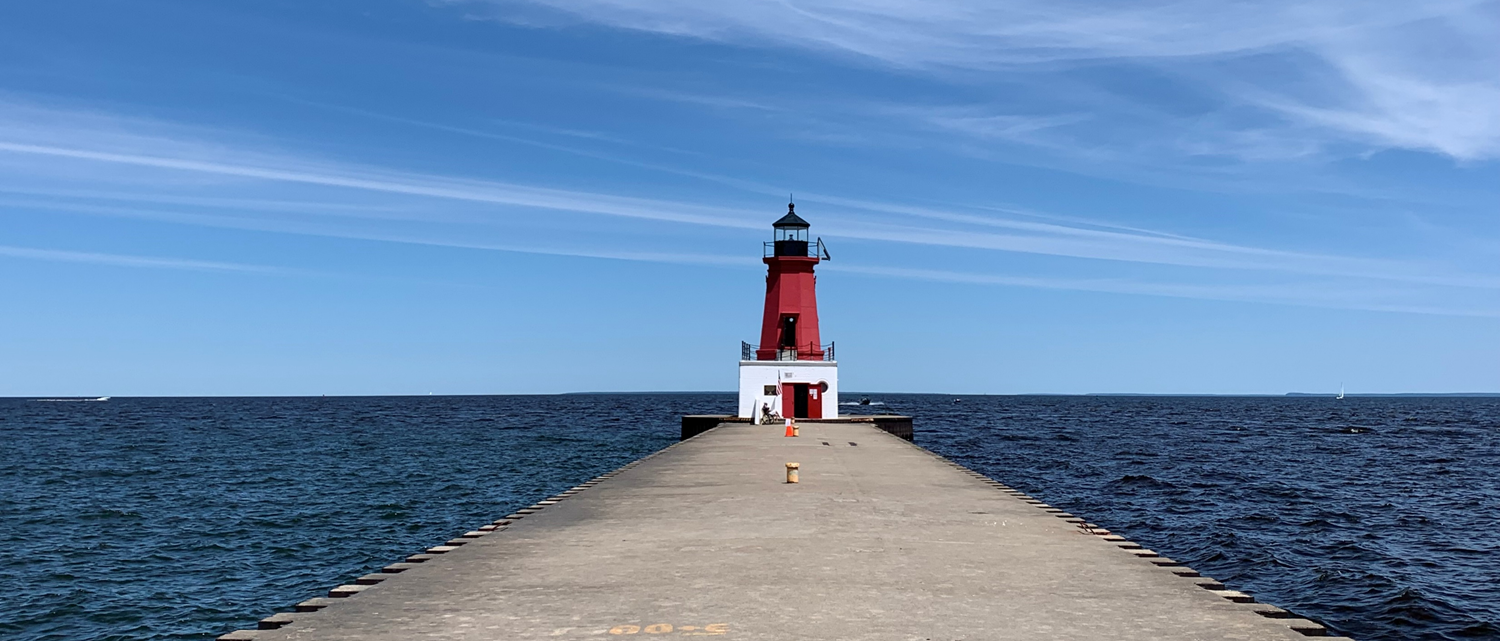 Rambling thoughts after a weekend ramble.
Rambling thoughts after a weekend ramble.
Poetry is not my thing. Maybe it is my inherent lack of rhythm. Perhaps I am too practical a person. For whatever reason, I don’t get poetry and, frankly, I don’t care all that much for poetry. If ever I were to aspire to be a man of letters, I would need much remedial work in the poet’s art.
I thought well of myself, then, this past Monday as Becky and I were making our way across Michigan’s Upper Peninsula. We had spend a glorious weekend with friends in our old stomping grounds around Menominee at the furthest southwest point of the U.P. Our route along U.S. 2 on the south side of the peninsula and the shore of Lake Michigan was partly through the Hiawatha National Forest.
I turned to Becky and asked, “So other than Longfellow and the shore of Gitchee Gumee?” what did Hiawatha do to have a National Forest named after her? We had enough of a cell signal for a quick Google search. It turned out I would have scored some Trivial Pursuit points, but maybe not a pie slice worth. “The Song of Hiawatha” is a Henry Wadsworth Longfellow poem, and it is known for the line “By the shore of Gitchee Gumee…” (In fact, you don’t get to Gitchee Gumee until Part 22 of a way too long epic poem). But Hiawatha was not the princess I thought she was; he was an Ojibwe warrior in love with Minnehaha, a Dakota maiden.
And Gordon Lightfoot fans, yes, I know Gitchee Gumee is Lake Superior, not Lake Michigan (“The Wreck of the Edmond Fitzgerald,” where Gumee rhymes with gloomy).
I’d like to be able to thank some stalwart high school English teacher for my Trivial Pursuit knowledge of poetry, but I think I owe my thanks to my dear old mother who was known to recite lines from famous poems at the most inopportune moments.
All that is to say I am not the person to criticize the poet, which is exactly what I intend to do.
One of the many highlights of our weekend in Menominee was a walk out the north pier as it juts into the Green Bay to the lighthouse that stands at its end. For Becky and me, it is “our” lighthouse. For five years we walked and ran that pier to its very end, around the lighthouse and back again. We’ve seen the North Pier Lighthouse on bright and sunny summer days, on stormy fall days, and in the winter when it is icebound and a frigid wind blows off the bay.
It is our lighthouse. There was a painting of the North Pier Light in my pastor’s studies in Beaver and Langhorne and now in my retirement study in our Auburn house.
Becky and I love that lighthouse and photos (the one above was taken last Saturday) and paintings of it. We love it for its memories.
A love of lighthouses in general or any single lighthouse is not unique to us. Something there is about a lighthouse, to borrow and change a phrase from another poet.
Christians seem to have an affinity for lighthouses, or some poetic idea of them. We name churches and rescue missions Lighthouse and use a lighthouse image for capital campaigns and five year plans.
Here’s where this non-poet is going to get into trouble.
There is a currently popular worship song that likens Jesus to a lighthouse. It is a good song, sung in lively Celtic style. Its piety is pure and its sentiment sound. But its metaphor is mixed and that is its poetic problem.
“My Lighthouse” reminds us of the storms of life, a true metaphor if there ever was one. Jesus is called “the peace in my troubled sea.” The biblical image works.
It is the refrain that makes me grumpy:
My lighthouse, my lighthouse
Shining in the darkness. I will follow You
My lighthouse, my lighthouse
I will trust the promise
You will carry me safe to shore
Not my favorite metaphor, but I suppose Jesus as a lighthouse is fair enough, after all, he is the Light of the world. He told us the light shines in the darkness. We should follow Jesus (and those who follow him will not walk in darkness, but will have the light of life), but I am not sure we follow a lighthouse. One of the reasons we trust lighthouses is that they never move. We sail toward them. We don’t follow after them. The mixing of the metaphor, like the Edmund Fitzgerald, sinks even lower when we sing about our lighthouse carrying us safe to shore. Lifeboats and dinghies, Coast Guard helicopters and courageous lifeguards carry us safe to shore. Lighthouses remain fixed at the end of the pier or atop some rocky headland.
I get it. A song called “My Dinghy” would not make it to the top of the worship music charts. But metaphorically speaking, Jesus is more dinghy than lighthouse.
Becky and I love the North Pier Lighthouse for the memories, not as a metaphor.
In the meantime, ignore my grumpiness as we sing “My Lighthouse.” I’m not much of a poet, after all.
